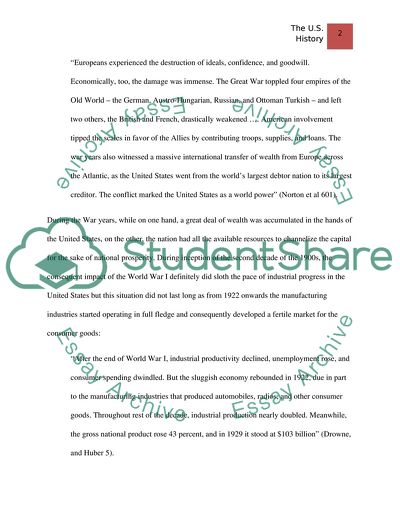Cite this document
(“U.S History since 1877 Essay Example | Topics and Well Written Essays - 1500 words”, n.d.)
Retrieved from https://studentshare.org/miscellaneous/1572490-us-history-since-1877
Retrieved from https://studentshare.org/miscellaneous/1572490-us-history-since-1877
(U.S History since 1877 Essay Example | Topics and Well Written Essays - 1500 Words)
https://studentshare.org/miscellaneous/1572490-us-history-since-1877.
https://studentshare.org/miscellaneous/1572490-us-history-since-1877.
“U.S History since 1877 Essay Example | Topics and Well Written Essays - 1500 Words”, n.d. https://studentshare.org/miscellaneous/1572490-us-history-since-1877.


